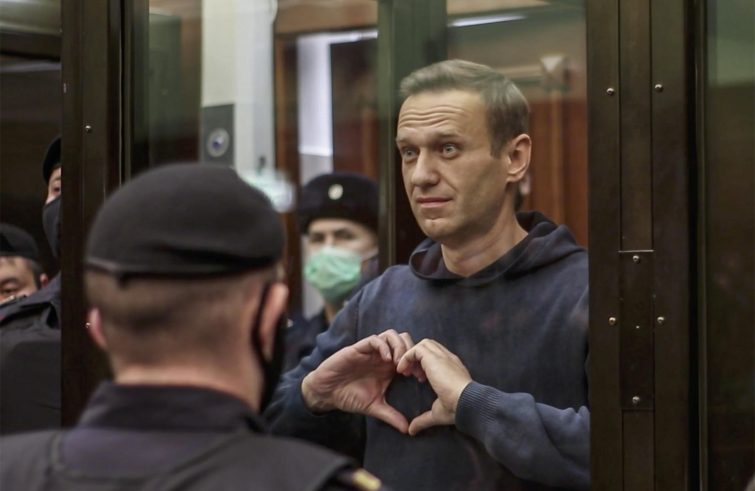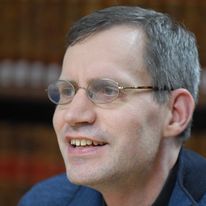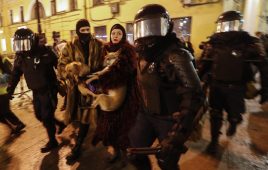
Activist Aleksej Navalny, Putin’s chief opponent, was sentenced to three years and six months in prison. At the end of a full-day hearing, the Simonovsky District Court in Moscow thus ruled that he should serve just over 2½ years in prison to finish the sentence, taking into account the time he had spent under house arrest, while under investigation in 2014. The court condemned Navalny for violating the terms of an earlier suspended sentence, (which the European Court of Justice ruled to be unjustified) when in fact he was recovering from life-threatening poisoning attempt occurred last August. “I am not afraid and you are not afraid,” the activist wrote on a piece of paper while the trial was taking place. Navalny’s advocates who took to the streets in their thousands on the past two Sundays were met by mass police arrests and violence against protesters. The ruling was promptly condemned by the international community, with numerous heads of State and EU leaders speaking out in opposition. “I condemn the sentencing of Alexei Navalny in the strongest possible terms,” declared European Commission President Ursula von der Leyen, calling for his “immediate and unconditional” release. EU Parliament President David Sassoli called for “an end to the persecution and violence against protesters.” Charles Michel, President of the European Council, wrote: “We do not accept his sentence – justice must not be politicised”; EU High Representative Josep Borrell recalled that the sentencing of Navalny runs counter “Russia’s international commitments on rule of law and fundamental freedoms” and it “goes against the verdict of European Court, which ruled this case arbitrary and unreasonable.” Josep Borrell plans to visit Moscow February 4-6 where he said he would like to discuss cooperation but above all “pass clear messages on the current situation and on the contentious [areas] of rights and freedoms” in Russia. He has also said he would like to see Mr. Navalny. SIR interviewed Jesuit Fr Stephan Lipke, director of the St Thomas Institute in Moscow, for a closer insight into the latest developments.
 There are conflicting, but very substantial, data on the number of people who took part in the protests (and arrests) on Sunday 23 and 31 January. What is the climate in Moscow?
There are conflicting, but very substantial, data on the number of people who took part in the protests (and arrests) on Sunday 23 and 31 January. What is the climate in Moscow?
Most extraordinarily, the demonstrations took place in provinces nationwide. This is remarkable because normally the people of Moscow and St. Petersburg take to the streets, but only for a specific reasons does this occur locally. There have also been many arrests, indeed, more than five thousand.
For a part of the population, life has resumed with ‘business as usual’, but many others are discussing how to interpret the situation.
People are clearly divided and so are the faithful of the Catholic Church, I know that for certain. The same goes for the Orthodox Church.
Is there more at stake than the Navanly affair?
Formally only Navanly. However, protesters also called for the “freedom for political prisoners”, i.e. activists close to Navalny, as well as people detained previously. There are no explicitly political slogans so far, except for one that I read: “Putin should retire.”
What is your view?
Clearly there is a situation of violence on the part of the government and the police, both recently and in the past, with increasingly harsh restrictions on personal freedoms. The freedom of religion is also being restricted very severely. We Catholics are not yet being targeted, although we are well aware of the cruel situation of Jehovah’s Witnesses who have been imprisoned.
All these restrictions on freedoms are growing worse.
During the first years of Putin’s rule, the police were under the obligation to comply with regulations for the protection of the people. But this is now no longer the case and police brutality is incomprehensibly escalating. There is racial bias in the police system – anyone with darker skin is checked and detained for hours; there are reports of Filipino women being raped by police officers in their stations or in the woods. Especially here in Moscow, this is becoming increasingly conspicuous as the goal is for the police to have privileges, so they will defend those privileges and thus defend the system that grants them.
 Is a successful opposition actually emerging, marking a novelty in political debate?
Is a successful opposition actually emerging, marking a novelty in political debate?
It would have already emerged on many occasions had there been a free television, as the internet is still not a relevant source of information for the majority of the population. Under the Putin administration many TV channel directors have been replaced, with new ones offering a one-sided perspective, thus making it hard for the opposition’s arguments to reach the people. For the moment, the opposition’s position is still somewhat rudimentary: they are clear about what they do not want, but find it hard to define what they do want. This is also due to the fact that being cut off in this way, they struggle to form a political identity of their own.
Putin’s approval rating has always fluctuated, but if the people were to get proof that he also steals government money, the whole situation could change.
For example, should people believe the documentary film about Putin’s palace released a fortnight ago, everything could be at risk. The narrative so far was that the president was surrounded by corrupt officials, whom he periodically clamped down on, which was instrumental to getting rid of people he no longer favoured. But should it emerge with certainty that Putin himself was part of a system based on corruption, everything could change.
Do you expect the verdict on the Navalny trial to trigger some transformations?
Emotional response changes rapidly here and a lot depends on the initial reporting. The first to learn about the outcome of the trial are the youth who use the Internet. But for most people, the Navalny case is not a game changer; the one thing that can make a difference is the issue of corruption. Not least because the question of whether Navalny is better than Putin is being debated by many. Navalny himself is important to perhaps 25% of the population.
There were also controversies regarding alleged involvement of teenagers in the streets by Navalny to increase the number of protesters. Does he have much of an impact on young people?
As a 13-year-old, I had a very clear political opinion. So why shouldn’t others? Young people enjoy the excitement, but I don’t think that Navalny made an instrumental use of that. His speeches, as I understand them, are addressed to college students, the language and style are directed at young people, aged 17 and over.
In an interview, Metropolitan Hilarion urged resolving social problems through evolution instead of revolution. Which problems was he referring to?
Inequality, certainly, and in particular the extreme poverty of the vast majority of the elderly, who have very low pensions; we have a good healthcare system in large cities, but a poor one in smaller districts. Then I believe the future of young people and the economic future of the country as a whole:
what would happen to Russia should the world no longer need gas and oil?
Furthermore, rules are unclear and contradictory. Self-employed individuals or businesses are subject to daily inspections and can be found to be at fault in their activities according to the whims of the supervisory authorities.
To what extent do the consequences of the pandemic play a role in the protests?
I believe to no extent at all. In fact, unlike Belarus, people here hardly talk about it, they wear masks on public transport, but many ignore the issue and those who are afraid do not take to the streets. The virus is somewhat removed from politics, and rules are applied when deemed useful. In Russia there is a saying that “the strictness of laws is mitigated by the fact that they are not compulsory”, unless they are necessary, in which case the government and the police can enforce compliance.









